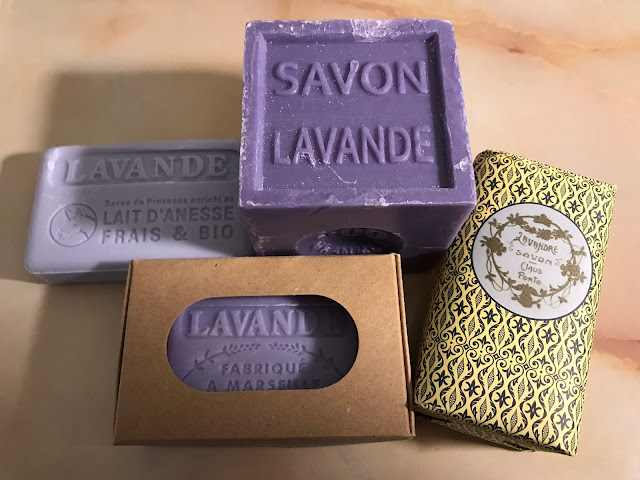French Soap: An Affordable Luxury
A wicker basket showed up in our bathroom filled with bar soap that had no brand name stamped into it and no packaging. Upon further inspection, these six bars of soap came out of a clear bag that Mom discovered on the very bottom shelf below all of the brand name soaps. There wasn't much info on the bag of soaps, either other than "French-Milled Soap. Made in France." Mom explained that French milled soap would last longer, it was better for our skin, and by taking it out of the bag and letting it "cure" in the air, it would last even longer. I guess Mom would know this kind of cosmetology science considering she taught this for a living.
When setting up my own household, I remembered the soap teachings from my mother. She would be happy that I was paying attention. So what is so special about French-milled soap?
French-milled soap has a history of being known as the finest quality of soap. It's milder on the skin, lathers easily, and lasts longer. French soapmakers invented the art of the milling soap process as far back as the 1700s. The process involves shredding the cold-processed soap and running it through three or more rollers to press it. This operation makes the soap harder and unlike Ivory, it's not going to float. Hence the name, French-milled or triple-milled.
Liquid soap may be convenient and comes in pretty containers, but it's expensive and often you use more than you need. There's also adding plastic bottles to landfills. Sure. Depending on where you live, soaps made in France may not be easily available. However, there are online sources, and if it's not feasible to purchase online, check out your local farmer's markets and buy from your local soapmaker. Local soap may not be from France, but you can be assured a lot of care and simple ingredients has gone into the soap. Also, check out a favorite clothing or home boutique. Often these specialty stores carry imported soaps that are small in production with limited distribution.
Is it worth buying French-milled soap and not purchasing the usual and easily accessible from the grocery store shelves? Overall, the prices of French, boutique, or locally crafted soap may cost a little more, but it's a small price to pay to treat yourself and your loved ones. It's a small price to pay for luxury.
Wine Recommendation: Soaking in the bathtub with a good bar of soap needs a good bottle of wine. Pour yourself a bottle of Chateauneuf de Pape or a bottle of Syrah from Washington State, particularly a Syrah from Walla Walla, WA.



Comments
Post a Comment